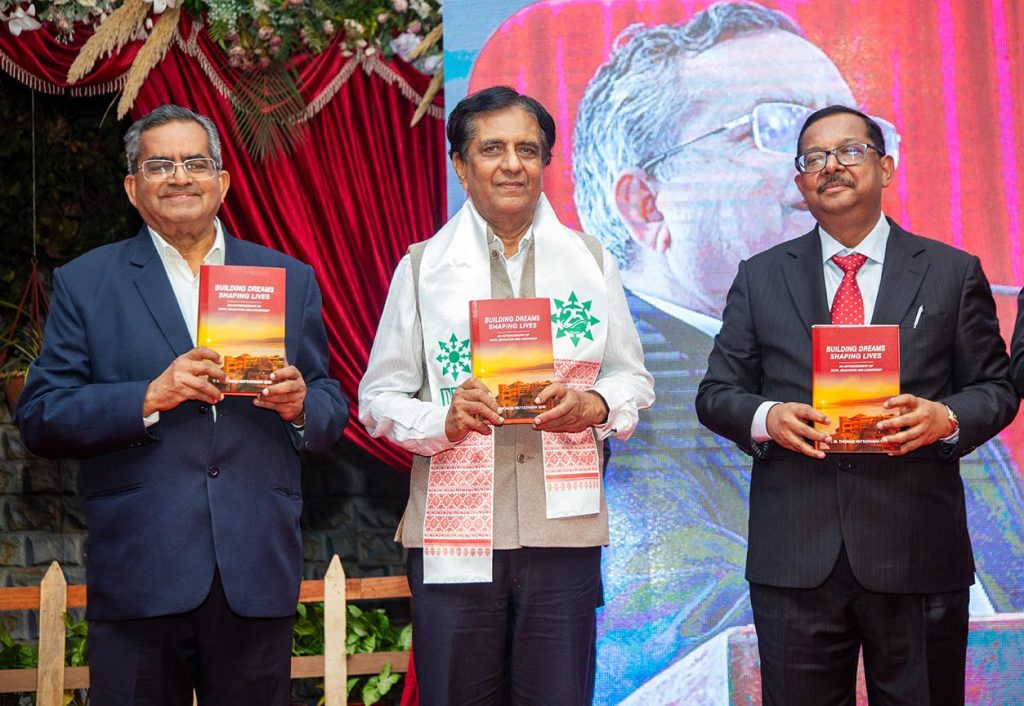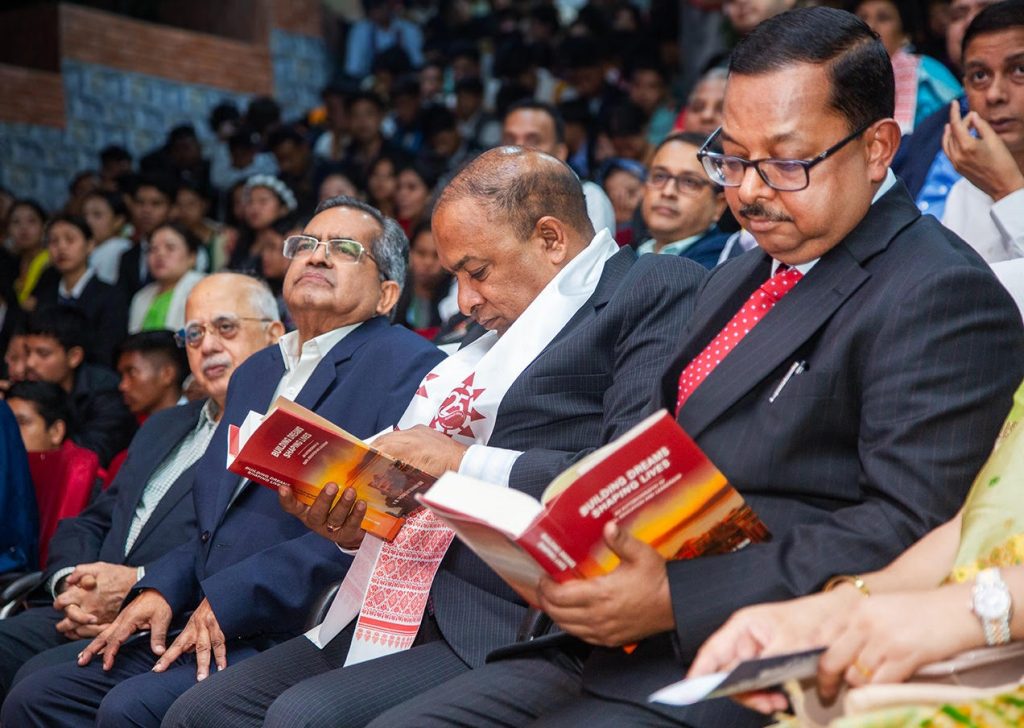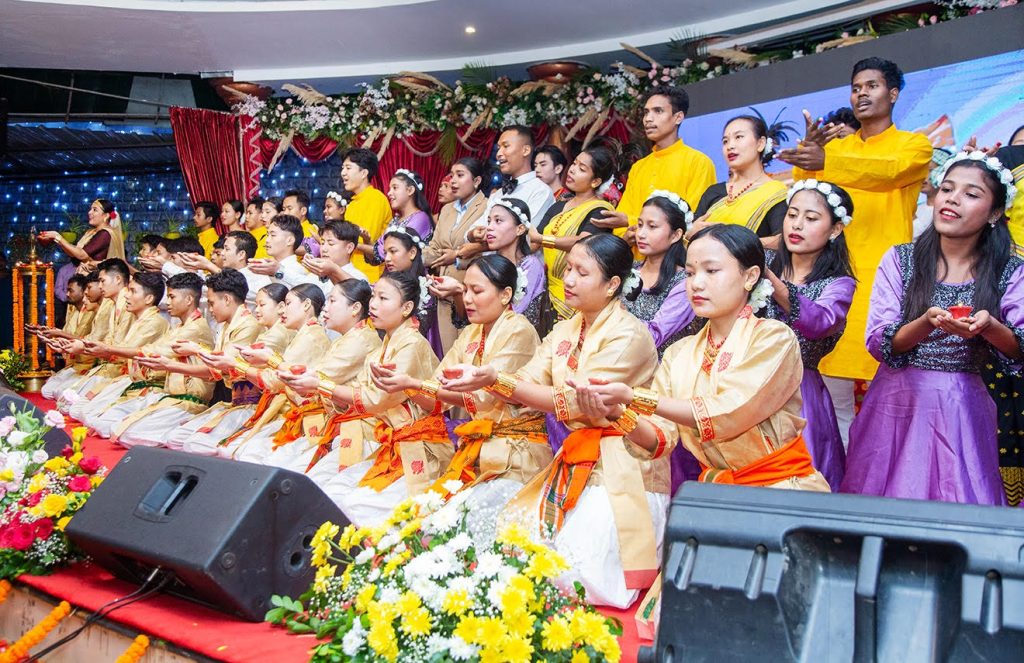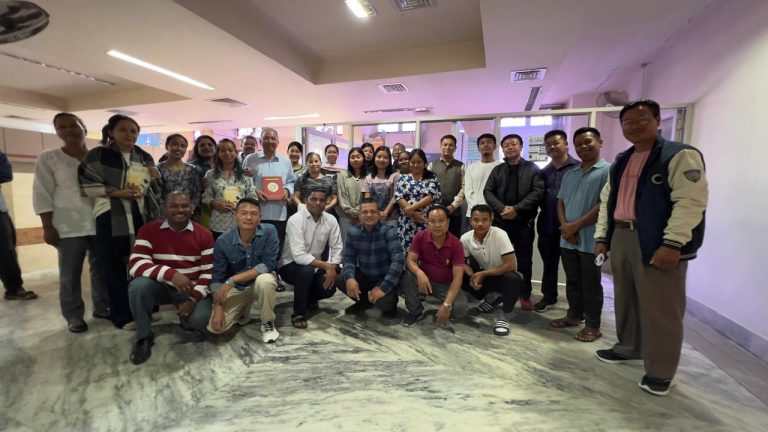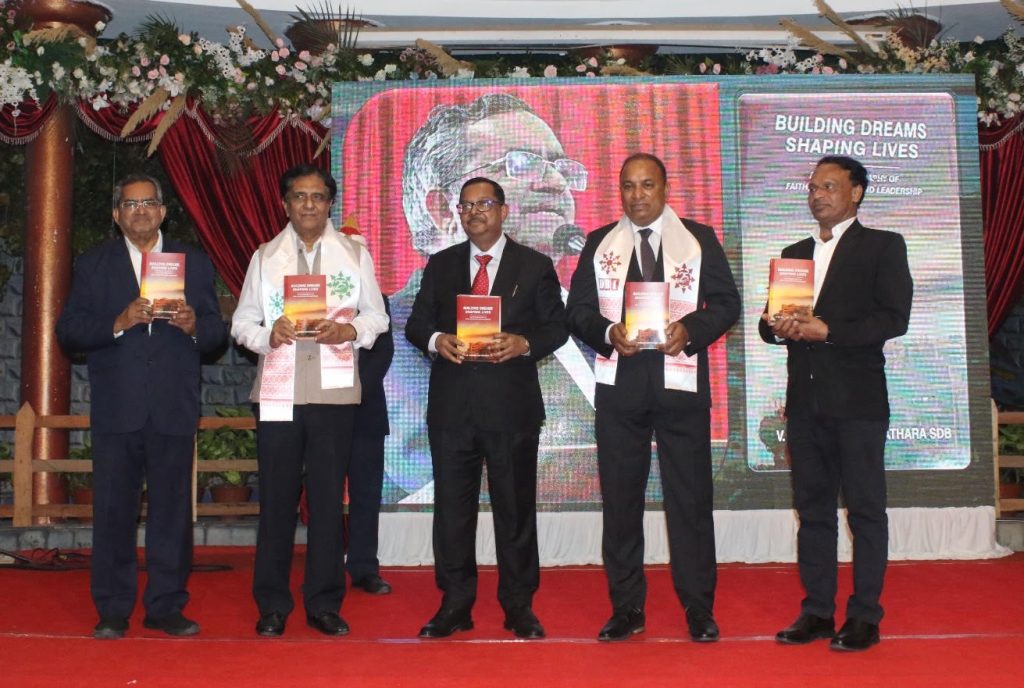
Hon’ble Justice Ujjal Bhuyan, Chief Guest and others at the released of the autobiography of Rev Fr VM Thomas SDB.
Don Bosco Institute (DBI), Kharghuli, marked its Silver Jubilee with a solemn thanksgiving ceremony and the launch of Building Dreams – Shaping Lives, the autobiography of its founder and educationist Fr. V.M. Thomas.
Hon’ble Justice Ujjal Bhuyan, Chief Guest at the celebration, released the volume in the presence of Guest of Honour Devajit Saikia, Advocate General of Assam and Secretary of the BCCI. The event drew a distinguished gathering of judges, government officials, clergy, religious, alumni, and friends of Don Bosco, all united in gratitude for a vision that has shaped generations of youth in Northeast India.
More than a chronicle of the achievements of the former Chancellor of Assam Don Bosco University spread across 598 pages, the autobiography is a testimony of grace. It narrates how one man’s dream became a collective mission. Fr. Thomas recalls his first walk up Kharghuli hill in 1993, when the site was nothing but wild grass and rocks. In that silence, he heard a whisper: “Build here a Lighthouse for the youth of the North East.” That whisper became the guiding vision of his life.
The book traces the journey from land acquisition struggles and water scarcity to milestones such as the laying of the foundation stone by Chief Minister Prafulla Kr. Mahanta in 2000, the inauguration by Prime Minister Dr. Manmohan Singh in 2004, and the dedication by Fr. Pascual Chávez, Rector Major of the Salesians. For Fr. Thomas, these were not mere ceremonies but signs of a vision taking shape—an institution of learning and a sanctuary of hope.
One of the book’s strengths lies in its portrayal of DBI alumni as “living fruits” of the mission. Judges, senior officers, entrepreneurs, teachers, and social leaders are presented as the harvest of hope, proof that dreams can become destiny. His pride in past pupils such as Justice Ujjal Bhuyan and Devajit Saikia is expressed as thanksgiving rather than self-congratulation.
Beyond institutional achievements, the autobiography highlights initiatives such as YouthBuild, YouthLead, Skill Missions for the underprivileged, and Child-Friendly Guwahati. The latter, close to his heart, is described as “the lamp that glows in the streets below,” a mission for street children who sleep under bridges and yearn for dignity.
Stylistically, the book blends devotional reflection with narrative detail. “My autobiography is not a book of achievements. It is a story of grace.” That humility makes the book resonate beyond DBI alumni or Salesian circles. It speaks to anyone who believes that institutions can be instruments of hope, and that faith can turn rocks into foundations.
News Courtesy: BOSCOM
